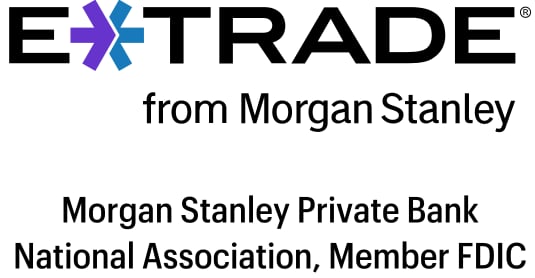Apple Cash and Apple Pay Review: How They Stack Up
Apple Cash (which now comes with virtual card numbers) and Apple Pay are Apple’s digital payment services. See how the Apple Cash digital card compares with the Apple Pay digital service.

Many, or all, of the products featured on this page are from our advertising partners who compensate us when you take certain actions on our website or click to take an action on their website. However, this does not influence our evaluations. Our opinions are our own. Here is a list of our partners and here's how we make money.
ALSO CONSIDER: PayPal || Venmo || Zelle || Cash App || Top P2P payment apps
Apple Cash, a digital card, and Apple Pay, a digital service, both come from Apple and are designed to streamline making payments and sending money to friends and family. Both are available in your Apple Wallet, and you can choose to set up one or both, depending on what you want to do.
New: Apple Pay and Apple Cash features announced for fall
In June 2024, Apple announced the ability for Apple Pay users to access installment loans from their credit and debit cards and to view and redeem rewards.
Apple Pay will also be usable on web browsers and computers by scanning a code on your iPhone to complete payment.
A new “Tap to Cash” feature will allow users to send and receive Apple Cash by holding two iPhones together, without having to reveal phone numbers.
Both Apple Cash and Apple Pay are integrated into the Messages app. You can send and receive money as you would a text message, with no additional downloads necessary beyond the operating system. Apple Cash and Apple Pay are available only in the U.S.
Apple introduced Apple Cash virtual card numbers in April 2024. You can use your Apple Cash virtual card number to make purchases online with merchants that don’t accept Apple Pay. For security, the three-digit security code associated with the virtual number will change from time to time. Find your Apple Cash virtual card number, expiration date and security code within your Apple Wallet.
Here’s what else you need to know about how Apple Pay and Apple Cash work, their similarities and differences, and how they stack up against Venmo and PayPal.
How does Apple Cash work?
Apple Cash is a digital card used to send and receive money from others in the Messages app, or to fund other Apple Pay transactions. You can load your Apple Cash card (also called your Apple Cash balance) with money from a debit or prepaid card.
With Apple Cash, you can:
Send and receive money within the Messages app or Apple Wallet via Apple Pay.
Fund payments via Apple Pay for purchases in apps, online and at retail locations (anywhere that Apple Pay is accepted).
Receive cash back (called Daily Cash) from your Apple credit card, if you have one.
Transfer your Apple Cash balance to your bank account.
Use your Apple Cash virtual card number to pay online vendors that don’t accept Apple Pay.

Member FDIC
Forbright Bank Growth Savings

4.25%
$0

Member FDIC
Axos ONE® Savings

4.66%
$1,500

Member FDIC
Varo Savings Account

5.00%
$0

Member FDIC
E*TRADE Premium Savings

4.00%
$0
How does Apple Pay work?
Apple Pay works by letting users make payments online, in apps and in stores — basically, anywhere contactless payments are accepted — from their mobile device (as well as other Apple devices). You can use Apple Pay with a linked credit, debit or prepaid card or with your Apple Cash balance. These payments must be approved with a passcode, Touch ID, Face ID or a double-click on Apple Watch’s side button.
You can also send money within the Messages app with Apple Pay, funded by your Apple Cash balance.
Apple Cash vs. Apple Pay: What’s the difference?
Apple Cash and Apple Pay are similar in a few ways. Both Apple Cash and Apple Pay:
Are built into Apple devices (you’ll find them in your Apple Wallet).
Can be used to make payments using your devices.
Can be funded by a debit card.
The two work together, too:
If you want to make a payment with your Apple Cash balance in a store, in an app or online, you’ll choose Apple Cash as the payment option through Apple Pay.
If you want to send money in the Messages app, you’ll tap the plus icon, then tap Apple Cash and use your Apple Cash balance to fund the transaction.
But there are some differences between Apple Cash and Apple Pay. To start, Apple Cash is a digital card while Apple Pay is a digital service. The other differences are:
Funding:
Apple Cash can be funded by a debit card, payments received via Messages, or Daily Cash (Apple’s term for cash back) from using your Apple credit card, if applicable.
Apple Pay can be used with a debit card, credit card, prepaid card or Apple Cash.
Payment method:
Apple Cash can only be used as a payment method through Apple Pay.
Apple Pay transactions can be made using cards such as credit, debit and prepaid cards.
Transferring to a bank account:
You can transfer your Apple Cash balance to a bank account.
You cannot transfer from Apple Pay to a bank account.
Can you get cash back with Apple Pay?
Yes, you can get cash back with Apple Pay but in a roundabout way. Users who have the Apple credit card automatically get a percentage of their purchases back as Daily Cash. So If you use your Apple Card to make purchases with Apple Pay, you can get cash back with Apple Pay. You can choose to have your cash back deposited into your Apple Cash account or your savings, if you connect your account with your Apple Card.
» Learn more: Read about Apple’s high-yield savings account
How to send (and receive) money with Apple Pay and Apple Cash
You can send money in the Messages app or Apple Wallet with both services, but you can only receive money into your Apple Cash account. You can send money yourself or use Apple’s virtual assistant Siri, which involves making a voice command like “Send $15 to Susan for lunch.”
When you receive money, it goes into your Apple Cash account. You can then spend the money or transfer it to a debit card or a bank account. Transfers to eligible Mastercard or Visa debit cards are instant, and bank transfers take 1 to 3 business days.
For balances over $1, Apple Cash has a $1 minimum transfer requirement when transferring money to a bank account or debit card. But if your balance is under $1, you can transfer the full balance.
Note that the minimum deposit into your Apple Cash account from your debit or prepaid card is $10.
» Plan to save the money you receive? Check out NerdWallet’s best online savings accounts
Apple Cash and Apple Pay details at a glance
Cost to use |
|
Funding options |
|
Speed for cashing out to a bank account with Apple Cash |
|
What you need |
|
Apple Cash and Apple Pay vs. PayPal and Venmo
Available platforms: Apple Pay and Apple Cash are available only on iOS, while competitors Venmo and PayPal are available on both Android and iOS devices.
Costs to send money: It's free to send money using a linked debit card or in-app balance with Apple Cash and Venmo. With Venmo, you can also use credit cards, but it costs 3% of the transfer amount. With PayPal, sending money with your in-app balance is free but, with a debit or credit card, it costs 2.9% of the total amount plus 30 cents.
Transfer speed: With Venmo, PayPal and Apple Cash, you receive money as an in-app balance, which you can then transfer to a bank account. This transfer can take up to three days with Venmo and Apple Cash, and up to a 5 days with PayPal.
Apple Cash, Venmo and PayPal also have an instant transfer option, which delivers funds within minutes. The transaction fee, subject to certain minimums and maximums, is 1.5% of the transferred amount for Apple Cash, but higher for PayPal and Venmo at 1.75% of the transferred amount.
FDIC insurance: Apple Cash transfers are serviced by a bank. When you register your Apple Cash account, your money is federally insured up to $250,000, just as it would be in a traditional bank account. Balances in PayPal and the Venmo app aren’t insured by the Federal Deposit Insurance Corp. unless they’re from direct deposits, such as paychecks or government benefits.
Transfer limits:
Apple Cash allows you to send up to $10,000 to another recipient per transaction, and transfer up to $20,000 per week to your debit card or bank account.
With Venmo, you can send up to $299.99 to others per week (including transactions at merchants) without verifying your identity. You can also transfer up to $999.99 to your bank per week without verifying your identity. If you do verify your identity, you can send/spend up to $60,000 per week and transfer up to $19,999.99 per week to your bank.
PayPal caps individual transactions at $60,000, and in some cases $10,000, per transfer; instant transfers to debit cards are capped at $5,000 per transfer and per week; instant transfers to bank accounts are capped at $25,000 per transfer.
Making payments: You can use Apple Pay (and Apple Cash via Apple Pay) at stores and in apps and on websites. In addition, you can apply for the company’s credit card, the Apple Card, which also integrates with other digital applications. PayPal and Venmo can also be used to make payments online, in apps and in stores, and each offers a credit card, too.









